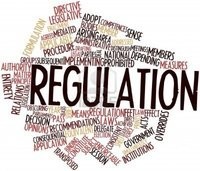In its report into different international policies on the use of biosimilars, the Canadian Agency for Drugs and Technologies in Health (CADTH) investigated the issue of interchangeability, switching and substitution of biosimilars [1].
CADTH believes that policies such as automatic substitution, interchangeability designation, and encouraging switching to biosimilars can significantly drive the uptake of biosimilars and enhance the confidence of healthcare professionals in biosimilars. The agency defines switching as a physician deciding to exchange one medicine with another with the same therapeutic intent. Interchangeability is defined as two medical treatments that are therapeutically equivalent and can be safely exchanged in clinical practice, and to the action of replacing a reference product with a biosimilar or vice versa, or replacing one biosimilar with another. CADTH defines substitution as a practice of replacing one drug for another at the pharmacy level, after the physician has written a prescription. Automatic substitution refers to replacing one drug with another at the pharmacy level, without consulting the prescribers.
The findings of the report cover post-marketing policies established in the US, Australia, New Zealand, Finland, France, Germany, The Netherlands, Norway, and the UK to facilitate the appropriate use of biosimilars.
The report found that in all of the countries, physician-led switching is allowed, and some countries (e.g. Germany, Norway, France [2] and Australia) encourage use of biosimilars for treatment-naïve patients as well as allow switching patients already undergoing treatment with a reference biological.
In the European Union (EU), decisions on the interchangeability or substitution of biosimilars and originator biologicals are not made by the European Medicines Agency (EMA), but at the national level. In the UK, switching is managed at the discretion of the prescriber and automatic substitution at the pharmacy level is not recommended. In Germany, the Paul Ehrlich Institute (a German federal agency) encourages prescriber-led switching. In France, according to a ministerial directive issued in August 2017, patients can be switched at any time, but pharmacy-level substitution can only take place for treatment-naïve patients and with notification to the prescriber [3]. The Netherlands permits new patients to receive biosimilars immediately; but leaves the decision on whether to switch to physicians. Norway’s drug regulator, Norwegian Medicines Agency (NoMA), considers that it is safe to switch between reference products and biosimilars and among biosimilars. However, the decision to switch remains with physicians. Although automatic substitution is not permitted in Finland, the Finnish Medicines Agency (Fimea) considers EMA-approved biosimilars to be interchangeable with their reference biologicals as long as the change is under the supervision of a healthcare professional and that switching is documented [4].
In Australia, the government actively encourages the use of biosimilars for treatment-naïve patients and physicians may choose to switch established patients. Automatic substitution at the pharmacy level is permitted for biosimilars that have been ‘a-flagged’ [5].
The report also found that in many US states, automatic substitution is permitted for biosimilars that are deemed interchangeable by the US Food and Drug Administration (FDA), unless the physician prohibits such substitution [6].
Substitution is not permitted in New Zealand, where the decision to switch remains with the clinician.
Finally, other countries included in the scan do not permit automatic substitution, except for Australia and Germany, which allow substitution for a select list of biosimilars, unless the physician forbids it.
Related articles
International promotion and education for biosimilars
International prescribing incentives for biosimilars
International supply side policies for biosimilars
Canadian report into international policies for biosimilars
References
1. CADTH Environmental Scan. International policies on the appropriate use of biosimilar drugs. October 2018 [homepage on the Internet]. [cited 2018 Nov 15]. Available from: www.cadth.ca/sites/default/files/pdf/es0333_international-policies-on-use-of-biosimilar-drugs.pdf
2. GaBI Online - Generics and Biosimilars Initiative. Biosimilar substitution in Europe [www.gabionline.net]. Mol, Belgium: Pro Pharma Communications International; [cited 2018 Nov 23]. Available from: www.gabionline.net/Reports/Biosimilar-substitution-in-Europe
3. GaBI Online - Generics and Biosimilars Initiative. France to allow biosimilars substitution [www.gabionline.net]. Mol, Belgium: Pro Pharma Communications International; [cited 2018 Nov 23]. Available from: www.gabionline.net/Policies-Legislation/France-to-allow-biosimilars-substitution
4. GaBI Online - Generics and Biosimilars Initiative. Finnish drug regulator recommends interchangeability of biosimilars [www.gabionline.net]. Mol, Belgium: Pro Pharma Communications International; [cited 2018 Nov 23]. Available from: www.gabionline.net/Policies-Legislation/Finnish-drug-regulator-recommends-interchangeability-of-biosimilars
5. GaBI Online - Generics and Biosimilars Initiative. Australia’s PBAC recommends substitution of biosimilars [www.gabionline.net]. Mol, Belgium: Pro Pharma Communications International; [cited 2018 Nov 23]. Available from: www.gabionline.net/Biosimilars/General/Australia-s-PBAC-recommends-substitution-of-biosimilars
6. Derbyshire M. Update on US state legislation on biosimilars substitution. Generics and Biosimilars Initiative Journal (GaBI Journal). 2015;4(2):95-7. doi:10.5639/gabij.2015.0402.020
Permission granted to reproduce for personal and non-commercial use only. All other reproduction, copy or reprinting of all or part of any ‘Content’ found on this website is strictly prohibited without the prior consent of the publisher. Contact the publisher to obtain permission before redistributing.
Copyright – Unless otherwise stated all contents of this website are © 2018 Pro Pharma Communications International. All Rights Reserved.








 0
0











Post your comment